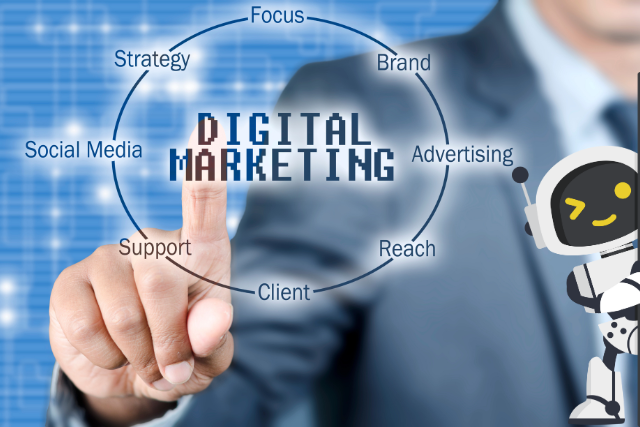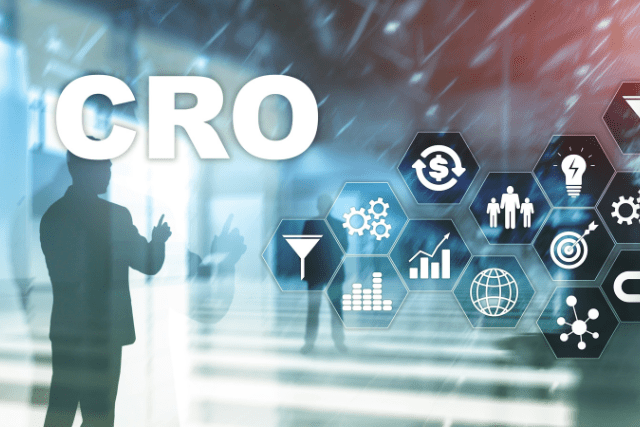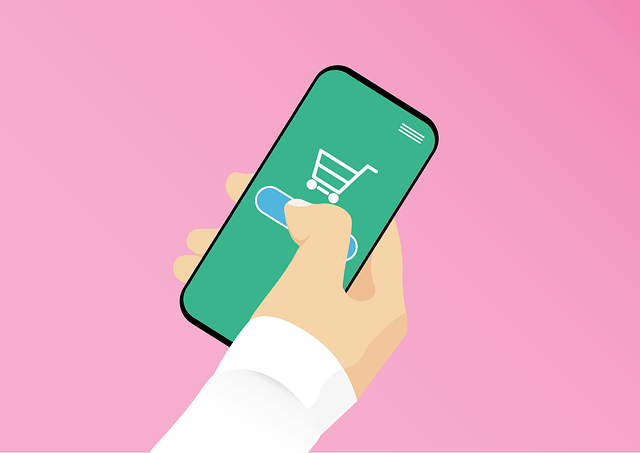Digital marketing has always been about innovation, and the latest game-changer is Artificial Intelligence (AI). AI is revolutionizing the way businesses engage with their customers, manage campaigns, and analyze data. With capabilities like targeted advertising, chatbots for customer support, and predictive analytics, AI is helping marketers achieve unprecedented levels of efficiency and effectiveness.
In this comprehensive guide, we’ll explore the various ways AI is transforming digital marketing and provide actionable insights on how you can use AI to stay ahead in the competitive landscape.
Why You Need AI in Digital Marketing
Before we get into the specifics, let’s understand why AI is becoming essential in digital marketing:
- Better Customer Insights: AI helps you understand your audience better by analyzing vast amounts of data.
- Improved Personalization: It enables you to create highly personalized marketing campaigns.
- Increased Efficiency: Automating repetitive tasks saves time and resources.
- Enhanced Decision-Making: AI provides data-driven insights that improve your decision-making process.
Now, let’s look at how you can implement AI in your digital marketing strategy.
1. Personalization and Targeted Advertising
One of the biggest benefits of using AI in digital marketing is personalization. Customers expect a tailored experience, and AI makes it possible to deliver just that.
How AI Helps with Personalization
AI algorithms can analyze customer data—such as browsing behaviour, past purchases, and engagement history—to predict what products or services they might be interested in. This allows you to create targeted content that speaks directly to their needs.
For example, AI tools like Dynamic Yield or Optimizely can help you deliver personalized product recommendations and content suggestions based on user behavior.
Steps to Implement AI for Personalization:
- Use AI tools: Start with AI-powered platforms like Segment or HubSpot to gather and analyze customer data.
- Segment your audience: Divide your audience based on demographics, behaviour, and preferences.
- Create tailored content: Use AI insights to craft content that resonates with each segment.
Why It Matters
According to a study by Salesforce, personalized emails have a 29% higher open rate and a 41% higher click-through rate than non-personalized ones. That’s a significant difference!
2. AI-Powered Chatbots for Customer Support
Chatbots are becoming a popular choice for customer support because they provide quick responses and can handle multiple queries at once.
Benefits of AI-Powered Chatbots
- 24/7 availability: Your customers can get support anytime, anywhere.
- Instant responses: No more waiting for a human agent to reply.
- Cost-effective: Reduces the need for a large customer support team.
How to Use Chatbots Effectively:
- Identify common queries: Start by listing the most common customer questions or issues.
- Choose the right platform: Use tools like Tidio or ManyChat to create a chatbot.
- Integrate with your CRM: Ensure your chatbot is connected to your CRM system for seamless data flow.
Case Study
H&M uses AI-powered chatbots on their website to help customers find products, check order statuses, and even provide style advice. This not only improves customer satisfaction but also increases sales.
3. Predictive Analytics and Data-Driven Marketing
Predictive analytics is another powerful AI tool that helps businesses make smarter marketing decisions. It allows you to anticipate future trends based on historical data, which can be a game-changer for your campaigns.
How Predictive Analytics Works
Predictive analytics uses machine learning algorithms to analyze past behaviors and predict future outcomes. This can help in:
- Forecasting sales: Identify which products are likely to sell more.
- Optimizing inventory: Avoid overstocking or stockouts.
- Creating targeted campaigns: Predict which customers are most likely to respond to specific offers.
Tools for Predictive Analytics:
- Google Analytics: Offers advanced analytics features with AI integration.
- Tableau: For more sophisticated data visualization and predictive modeling.
Pro Tip:
Use predictive analytics to identify high-value customers and tailor your marketing efforts to retain them. This can significantly boost your Customer Lifetime Value (CLV).
4. Automating Marketing Processes
Automation is crucial in today’s fast-paced marketing world. AI-driven marketing automation tools help you streamline repetitive tasks, saving time and effort.
What Can You Automate with AI?
- Email campaigns: Automate personalized emails based on customer behaviour.
- Social media posts: Schedule and optimize posts for maximum engagement.
- Lead scoring: Automatically score leads based on their likelihood to convert.
Best Tools for Automation:
- ActiveCampaign: A comprehensive tool for email marketing and automation.
- Zapier: Connects different apps and automates workflows.
- HubSpot: Offers robust automation features along with a CRM.
Actionable Steps:
- Identify repetitive tasks: Make a list of tasks that can be automated.
- Select an automation tool: Choose a tool that fits your needs and budget.
- Set up workflows: Create automated workflows for tasks like lead nurturing, follow-ups, and social media posting.
5. Social Media Management and Influencer Marketing
AI can significantly enhance your social media marketing efforts by providing insights into what content works best and when to post.
AI Tools for Social Media
- Lately: Uses AI to repurpose your long-form content into social media posts.
- Buffer: Schedules posts and analyzes social media performance.
- Cortex: Predicts the best times to post and suggests the most engaging content.
Influencer Marketing with AI
Finding the right influencers can be a daunting task, but AI makes it easier. Tools like BuzzSumo and Influencity use AI to analyze influencer engagement rates, audience demographics, and content performance.
Quick Tip:
Use AI to monitor your social media campaigns in real time and adjust strategies based on performance data. This will help you maximize your ROI and engagement rates.
6. Customer Segmentation and Behavioral Analysis
Effective marketing starts with understanding your audience. AI helps you go beyond basic demographic segmentation to understand customer behaviours and preferences.
How to Leverage AI for Segmentation:
- Collect data: Use tools like Google Analytics or Kissmetrics to gather data.
- Analyze behaviours: Look for patterns in customer behaviour, such as frequently visited pages, time spent on site, and purchase history.
- Create targeted campaigns: Use these insights to develop highly targeted campaigns that speak directly to each segment’s needs.
Example:
Spotify uses AI to analyze user listening habits and create personalized playlists. This level of personalization keeps users engaged and increases customer retention.
7. Future Trends in AI-Driven Marketing
AI is constantly evolving, and so should your marketing strategies. Here are a few trends to watch:
AI-Powered Virtual Assistants
As virtual assistants like Alexa and Google Assistant become more prevalent, businesses can explore new ways to interact with customers through voice search and smart devices.
AI-Driven Content Creation
AI tools are becoming more sophisticated in creating content. Tools like Jasper (formerly Jarvis) and Writesonic are already helping marketers create SEO-optimized blog posts, ad copy, and social media content.
Enhanced Data Privacy
With AI’s growing influence, data privacy will become more critical. Make sure to use AI responsibly and comply with regulations like GDPR to maintain customer trust.
Conclusion
There you have it, folks! Artificial Intelligence is not just the future of digital marketing; it’s the present. By leveraging AI, you can enhance your marketing efforts, improve customer engagement, and gain a competitive edge.
Whether you’re a small business or a large enterprise, AI has something to offer. Start by incorporating the strategies mentioned in this guide, and watch your digital marketing results soar!
FAQs
1. What are the potential ethical concerns associated with using AI in digital marketing?
Using AI in marketing raises concerns about data privacy and security. It’s crucial to use AI responsibly and ensure transparency in how customer data is used.
2. How can businesses ensure the privacy and security of customer data when leveraging AI?
Businesses should use encryption, follow data privacy regulations like GDPR, and ensure that their AI tools comply with these standards.
3. What are the limitations of implementing AI in digital marketing strategies?
AI implementation requires significant data, technical expertise, and investment. Additionally, AI is only as good as the data it is trained on, so poor data quality can limit effectiveness.
4. How does AI-powered personalization impact customer trust and loyalty?
AI-powered personalization enhances customer trust by providing relevant and timely content, improving the overall customer experience and fostering loyalty.
5. What are some best practices for integrating AI into existing marketing campaigns?
Start small, test continuously, and focus on areas where AI can make the most significant impact, such as personalization, automation, and customer insights.
6. Which AI tools are best for beginners in digital marketing?
Tools like Google Analytics, Mailchimp, HubSpot, and Hootsuite are great starting points for marketers new to AI.







